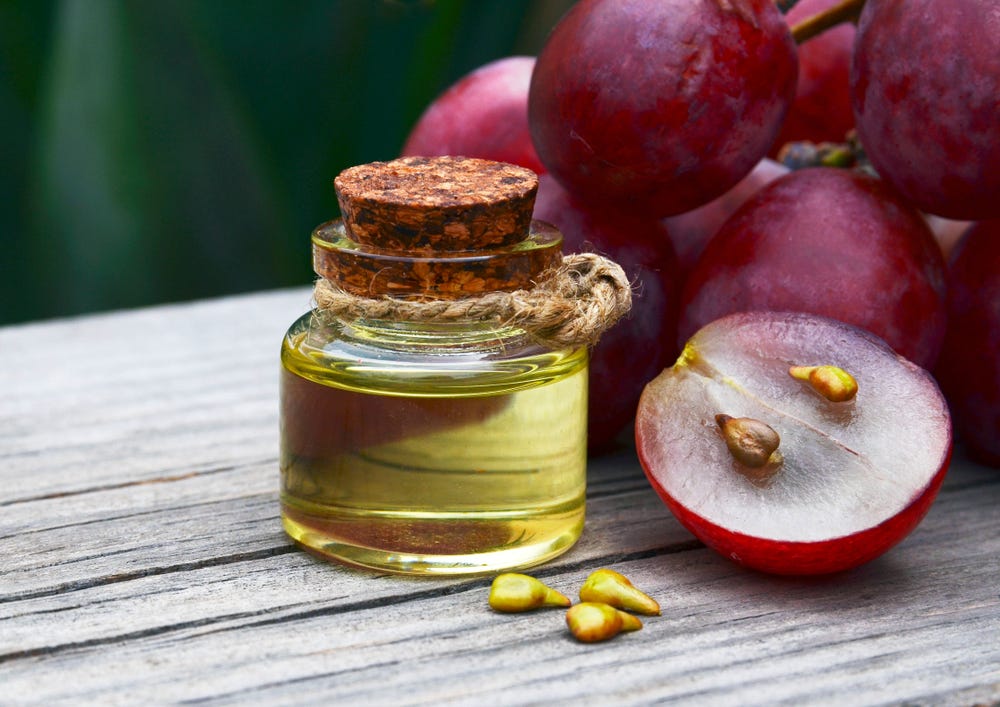Grapeseed oil is commonly used in cooking. It is neutral in flavor and high in Vitamin E and linoleic acid, a polyunsaturated fat that has shown some promising health benefits. It is made from extracting the oil from leftover grape seeds (a by-product of wine-making). The remaining material after the oil is extracted is called “grape seed extract”. Grape seed extract also has a high amount of Vitamin E, in addition to polyphenols (antioxidants), potassium, copper, phosphorous, calcium, magnesium, zinc, and iron. Out of these components, the polyphenols are what give grape seed extract the most benefits.
Grape seed extract is high in a class of polyphenols called Oligomeric proanthocyanins, or OPC. In fact, it can be considered part of the tannins of wine. OPC is also what gives grape seed extract its benefits, specifically its antioxidant benefits. It is such a powerful antioxidant that it is considered to have up to fifty times the antioxidant capacity of Vitamin E and twenty times the antioxidant capacity of Vitamin C. As an antioxidant, studies have shown that the OPC in grape seed extract may help improve and maintain brain function as it ages, improve kidney and liver functioning, reduce cancer risk, and help improve skin health (including accelerating wound healing).
In addition to these benefits, grape seed extract is well known and studied for its heart health benefits. Multiple studies have shown that grape seed extract lowers overall blood pressure (systolic and diastolic) significantly, especially for those over 50 with obesity or a metabolic condition. Grape seed extract’s mechanism to lowering blood pressure has to do with its functioning as a vasodilator. As a vasodilator, it helps increase nitric oxide production. Nitric oxide production has also been shown to be effective in improving blood flow. Studies have shown that for individuals who are sitting for long periods of time, consumption of grape seed extract results in better blood flow and less leg swelling and edema. For athletes, a vasodilator like grape seed extract can increase blood flow to the muscles, thus improving performance.
Dosage rates for grape seed extract can vary, depending on the expected benefit. For lowering blood pressure and improving blood flow, studies show that taking anywhere from 200-600 milligrams per day for a minimum of 6 weeks is recommended before any noticeable benefits are shown. For antioxidant benefits, daily consumption of between 150-300 milligrams per day is recommended. For athletes, consumption of between 100-300 milligrams is recommended to increase exercise performance.
Since OPC and other polyphenols are the source of grape seed extract’s benefits, look for supplements that are standardized and contain 90% + of polyphenols. This supplement (where grape seed extract is typically found) is standardized to 90% polyphenols and claims to be effective in heart and immune health. For athletes, this pre-workout contains 200 milligrams of grape seed extract that is also standardized to 90% polyphenols.
Where else have you seen grape seed extract? Let us know!



